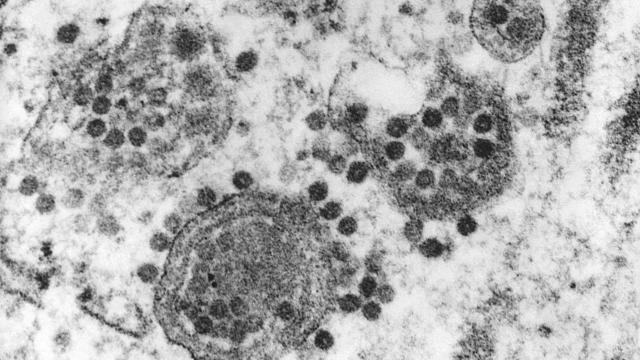On Tuesday, Rhode Island health officials reported that a resident had died after contracting the Eastern equine encephalitis (EEE) virus. The death marks the third fatality linked to EEE reported this year, and the second such case documented in less than a week.
The summer season is winding down for many in the U.S., but this rare viral infection spread by mosquitoes is still claiming lives. Health officials first reported the resident’s case of EEE in late August, noting at the time that the person was in critical condition.
It was the first case reported in Rhode Island since 2010. The resident, only disclosed to be in their 50s, died Monday, making theirs the first EEE-related death documented in the state since 2007.
Mosquitoes and equines (horses) in the county where the person resided have been found to carry EEE, health officials also said Tuesday. The virus was also detected elsewhere in the state, and in response, areas deemed to be at high risk for EEE exposure were sprayed with insecticides over two nights.
EEE is certainly one of the scarier diseases spread by mosquitoes. Most people who are infected with the virus never develop any serious symptoms. But in a small percentage of people, it manages to reach the nervous system, where it causes the brain swelling that gives the virus its name. This form of the disease is especially deadly, with a 33 per cent fatality rate. There are currently no specialised treatments for EEE, nor a preventive human vaccine.
Thankfully, EEE usually makes its home in mosquitoes that live away from people, and humans aren’t part of the virus’s natural life cycle. That means serious cases of EEE are rare, with the U.S. reporting an average of seven cases annually, according to the U.S. Centres for Disease Control and Prevention. This year, however, might turn out to be relatively bad.
Just last weekend, Michigan health officials announced that a resident had died after contracting EEE, and the state has documented four other confirmed or suspected cases.
The first EEE-related death recorded this year was reported in late August by Massachusetts health officials; the state has since reported seven cases in total as of last week (another Massachusetts man with EEE reportedly went into a coma, though his current condition is unknown). The virus has also been spotted in horses, birds, and mosquitoes in Connecticut and Florida.
For now, officials have warned that the peak transmission season for EEE will continue into September for people living near swampy areas along the Eastern and Southern U.S. And of course, as the warming climate makes life more hospitable to mosquitoes, it’s almost certain that EEE and other mosquito-borne diseases like West Nile will become more common throughout the year.
